
Duke Henry of Mecklenburg-Schwerin was Prince of the Netherlands from 7 February 1901 until his death in 1934 as the husband of Queen Wilhelmina. He remains the longest-serving Dutch consort.
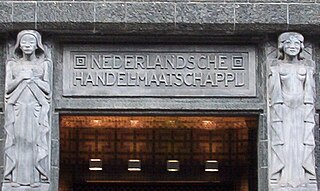
The Netherlands Trading Society was a Dutch trading and financial company, established in 1824, in The Hague by King William I to promote and develop trade, shipping and agriculture. For the next 140 years the NHM developed a large international branch network and increasingly engaged in banking operations. In 1964, it merged with Twentsche Bank to form Algemene Bank Nederland, itself a predecessor of ABN AMRO.

Scouting Nederland is the national Scout organisation of the Netherlands with approximately 110,000 members (53,324 male and 54,663 female, 87,000 youth members, as of 2010.
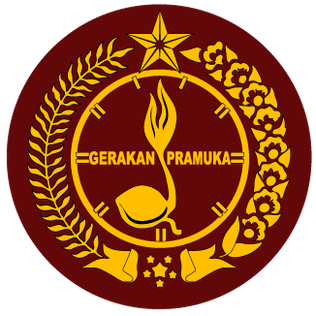
The Pramuka Movement of Indonesia, officially the Praja Muda Karana Scouting Movement, is the national scouting organization of Indonesia. Scouting was founded in the Dutch East Indies in 1912, and Indonesia became a member of the World Organization of the Scout Movement (WOSM) in 1953. Regulated by the Pramuka Movement Act of 2010, all elementary and secondary schools must operate a scouting program; and membership was compulsory for students in elementary and secondary schools from 2013 to 2024. It has 25.272.760 members, making it the world's largest Scout association.

Boy Scouts van Suriname is the national Scouting organization of Suriname. Scouting in Suriname officially started in 1924 and became a member of the World Organization of the Scout Movement (WOSM) in 1968. The coeducational association has 2,601 members.
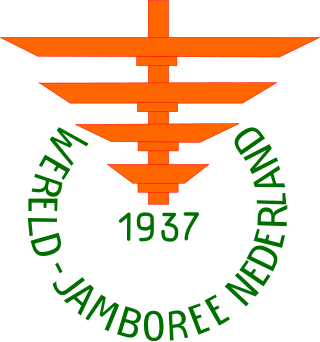
The 5th World Scout Jamboree was the World Scout Jamboree where 81-year-old Robert Baden-Powell gave his farewell.

Willem Anthony Engelbrecht, also known as Willem Anthonie Engelbrecht, was a Dutch jurist and colonial administrator. He was one of the originators of the so-called "Dutch Ethical Policy" in the Dutch East Indies.
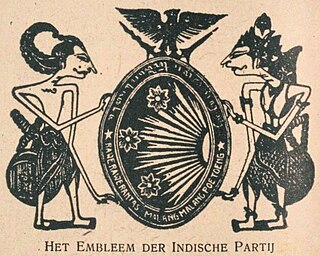
The Indische Partij (IP) or Indies Party was a short-lived but influential political organisation founded in 1912 by the Indo-European (Eurasian) journalist E.F.E. Douwes Dekker and the Javanese physicians Tjipto Mangoenkoesoemo and Soewardi Soerjaningrat. As one of the first political organisations pioneering Indonesian nationalism in the colonial Dutch East Indies it inspired several later organisations such as the Nationaal Indische Party (N.I.P.) or Sarekat Hindia in 1919 and Indo Europeesch Verbond (I.E.V.) in 1919. Its direct successor was Insulinde.

Freek Jacobus Vonk is a Dutch biologist who specializes in herpetology with a special interest in snake venom. He travels the world in search of the most spectacular and bizarre creatures. He has been bitten by a number of venomous snakes, almost lost his arm due to a Caribbean reef shark bite and has housed several parasites in his own body.

The Netherlands Indies Civil Administration was a semi-military organisation, established in April 1944, tasked with the restoration of civil administration and law of Dutch colonial rule after the capitulation of the Japanese occupational forces in the Dutch East Indies at the end of World War II.

Jkvr. Mariane Catherine van Hogendorp, a member of the Van Hogendorp family, was a Dutch feminist. She founded the Nederlandsche Vrouwenbond ter Verhooging van het Zedelijk Bewustzijn.
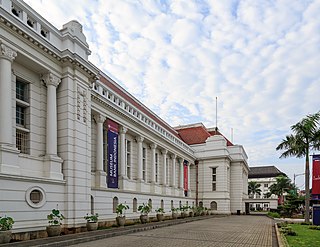
The Bank of Java was a note-issuing bank in the Dutch East Indies, founded in 1828, and nationalized in 1951 by the government of Indonesia to become the newly independent country’s central bank, later renamed Bank Indonesia. For more than a century, the Bank of Java was the central institution of the Dutch East Indies’ financial system, alongside the “big three” commercial banks. It was both a note-issuing bank and a commercial bank.
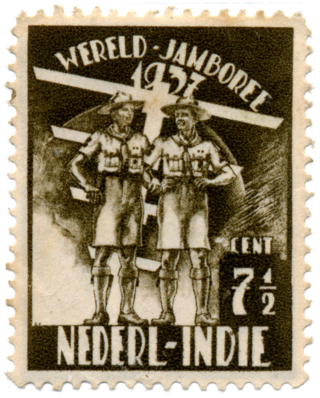
Javaansche Padvinders Organisatie (JPO) was a Scouting organization in the Dutch East Indies. This first Indonesian Scouting organization was established on the initiative of Sri Paduka Mangkunagara VII in 1916.
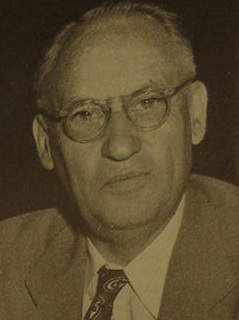
Petrus Hendrik Willem "Peter" Sitsen was a military officer, building contractor and public servant in colonial Indonesia. He was the architect of Indonesia's industrialisation policies during 1937–1942 and 1946–1950.
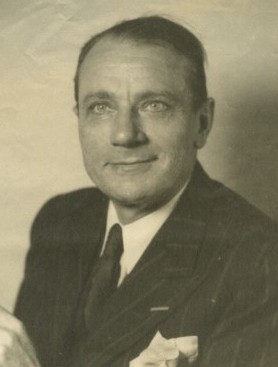
George Antoon Philip Weijer (1891-1979) was a business representative in colonial Indonesia, an economics professor at the University of Utrecht, and a government advisor and company director in the Netherlands.

Paul Alex Blaauw, usually known as P. A. Blaauw, was an Indo politician, lawyer, and member of the Dutch East Indies Volksraad representing the Indo Europeesch Verbond from the 1920s to the 1940s. During the period of transition to Indonesian independence and the 1949 Dutch–Indonesian Round Table Conference he was a leader of the largest faction advocating for the rights of Indos.

The Nederlandsch-Indische Escompto Maatschappij was a significant Dutch bank, founded in 1857 in Batavia, Dutch East Indies. In the first half of the 20th century, it was the smallest of the “big three” commercial banks, behind the Netherlands Trading Society and the Nederlandsch-Indische Handelsbank, that dominated the Dutch East Indies’ financial system alongside the note-issuing Bank of Java.

Abdoel Firman Siregar gelar Mangaradja Soangkoepon was a politician and Volksraad member in the Dutch East Indies. He was an Indonesian nationalist and was a political ally of many of the leaders who came to power in the early independence era, although he himself died before the country achieved its independence.




















